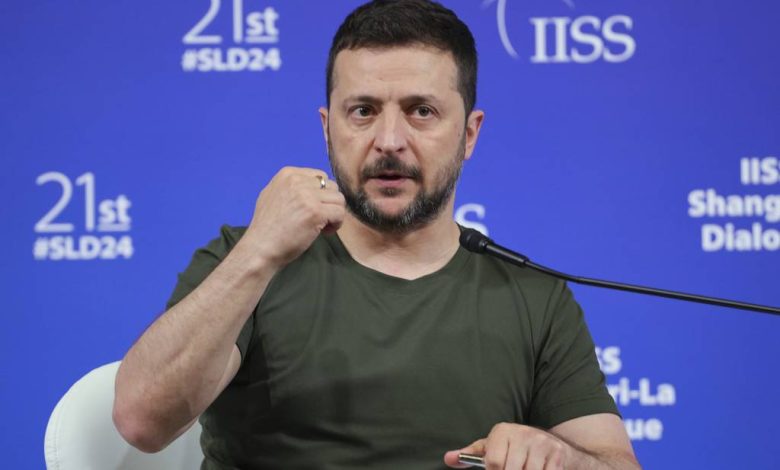US announces first batch of Ukraine aid since pivot on Russia strikes

PARIS — The U.S. announced another package of security aid to Ukraine, including munitions that can now be fired across the border into Russia to help stabilize a section of the front line.
The batch is worth an estimated $225 million and is made up of artillery rounds, armored vehicles, patrol boats, anti-tank and anti-aircraft systems and munitions for High Mobility Artillery Rocket Systems, or HIMARS.
This last system is key for Ukraine, defending against a new offensive on Kharkiv, the country’s second-largest city and less than two dozen miles from the border with Russia. In a major policy shift, the U.S. decided late in May to allow Ukraine’s armed forces to hit forces inside Russia that were preparing to attack. They can use HIMARS to do so.
But that permission is limited to these defensive strikes around Kharkiv — restrictions Ukrainian President Volodomyr Zelenskyy said last week that he would like to see lifted.
“Is that sufficient? No,” Zelenskyy said of the policy change.
On Friday Zelenskyy met with U.S. President Joe Biden in Paris, a day after both visited Normandy to commemorate the 80th anniversary of D-Day. In a speech at the Thursday event, Biden affirmed the U.S. commitment to Ukraine’s defense as its forces continue to struggle against Russian attacks in the east.
“We will not walk away,” Biden said, “because if we do, Ukraine will be subjugated.”
This is the latest round of aid sent to Ukraine since the U.S. passed a further $60 billion in economic and security aid for Kyiv. The largest of those recent packages, though, is $6 billion in long-term assistance through the Ukraine Security Assistance Initiative. Much of the equipment ordered through that package won’t arrive for years.
“It’s so necessary for the feeling of our people that we are not alone,” Zelenskyy said while meeting with Biden Friday. “We are with you, our strategic partner.”
Noah Robertson is the Pentagon reporter at Defense News. He previously covered national security for the Christian Science Monitor. He holds a bachelor’s degree in English and government from the College of William & Mary in his hometown of Williamsburg, Virginia.







